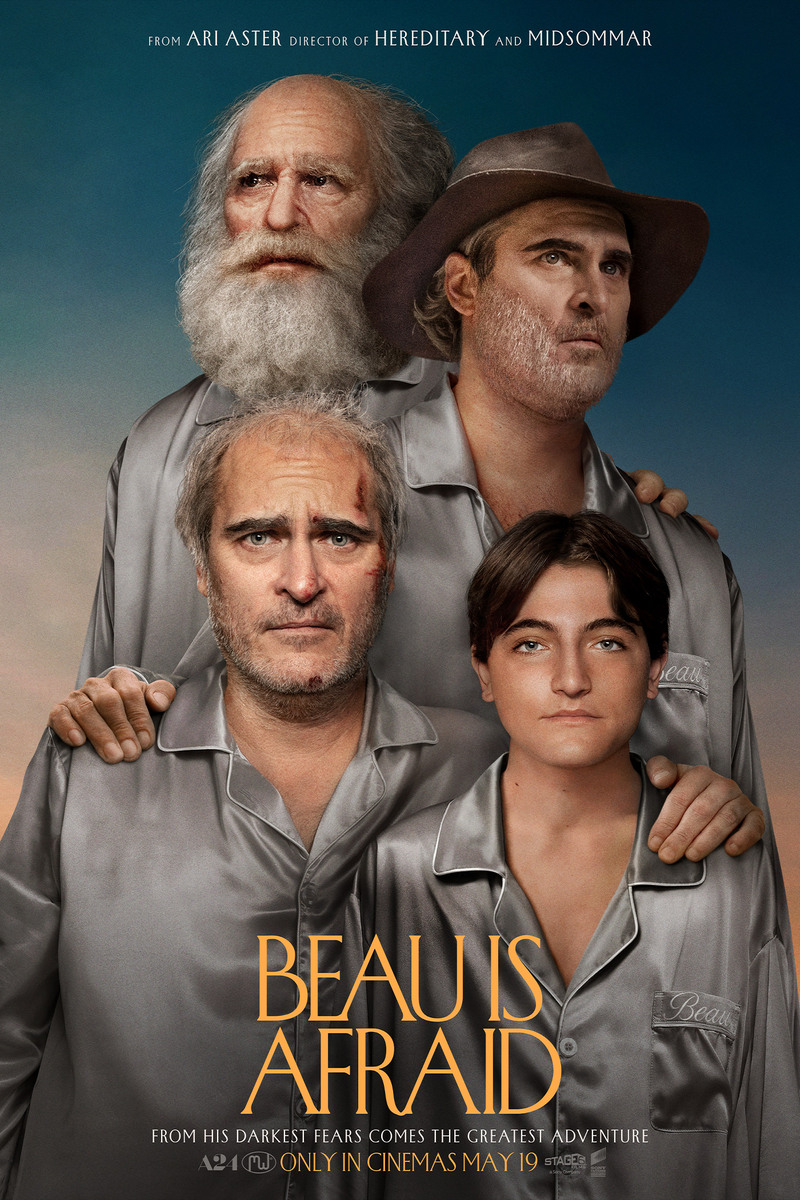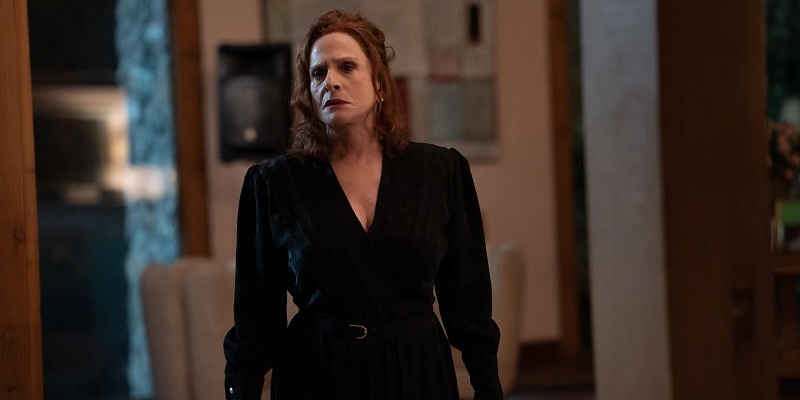
Review by
Eric Hillis
Directed by: Ari Aster
Starring: Joaquin Phoenix, Patti LuPone, Nathan Lane, Amy Ryan, Kylie Rogers, Parker Posey, Stephen
McKinley Henderson, Hayley Squires, Michael Gandolfini, Zoe Lister-Jones,
Richard Kind, Armen Nahapetian, Denis Ménochet

"I'm not angry, I'm just disappointed." At some point in your life
you've probably heard those awful words wielded by your mother, and
unless you're a complete narcissist, they're as crushing as a bad
medical diagnosis. Nobody wants to disappoint their mother, yet most of
us inevitably do to some degree. Mothers have ideas about who their
children should become, which of course is unfair, and few of us follow
the path our moms would prefer. If you become the vice-president of a
nation your mother will probably find a way to make you feel bad for not
becoming the president. Every ethnicity seems to believe this is
something specific to their culture, but it's universal. That's just how
mothers are.
Writer/director Ari Aster has called
Beau is Afraid "Jewish Lord of the Rings," but you don't
need to be one of the chosen people for its central theme of the terror
of letting your mom down resonate.

Joaquin Phoenix plays Beau, a neurotic middle-aged man
who lives in an exaggeratedly crime-ridden city not dissimilar to that
seen in Alan Arkin's Little Murders. The day to day grind of urban life is heightened in an absurdist
manner in the French tradition of Jacques Tati and Bertrand Blier's
Buffet Froid. Simply getting into his apartment brings Beau the potential of being
attacked by naked knife-wielding maniacs, and there's a deadly spider on
the loose somewhere in his building. But worst of all, Beau has to
contend with a trip home to see his mother (played by
Patti LuPone and in flashbacks by Zoe Lister-Jones). When
various circumstances conspire to make him miss his flight, Beau is
shocked when he calls home and finds his mother has been killed in a
freak accident. This leads him on an often surreal adventure as he tries
to get home for the funeral.
Aster's film is split roughly into four distinct acts, with the second
segment seeing him wake up in the home of a WASPy couple (Nathan Lane
and Amy Ryan), after being hit by their car. Renoir's
Boudo Saved from Drowning seems to be the template as Beau
finds himself stuck with this family that presents itself as
well-adjusted but seems to harbour secrets. The nods to French cinema
continue with the casting of Denis Ménochet in a hilarious silent
role as a PTSD suffering ex-soldier living in a trailer in the family's
garden, constantly staring like at Beau like Annie Hall's grandmother in
Woody Allen's film. The feeling Beau gets that this family's outward
hospitality may be masking dark intentions is probably representative of
the experience of Jewish Americans around their Christian
neighbours.

As someone who really didn't care for Aster's previous films,
Hereditary
and
Midsommar, these first two segments came as a pleasant surprise. Aster proves
himself a master of absurdist comedy, and understands just how to
stretch a scenario for comic effect. In Phoenix he's found the perfect
comic foil, and simply watching the actor's hapless reactions to the
increasing absurdities surrounding him is enough to have you
chuckling.
This movie is three hours long however, and boy does that last hour
drag. The comedy becomes less effective and the filmmaking more blunt as
Beau makes his way closer to his mother's home and Aster begins to
address his mommy issues in a manner that feels at once self-indulgent
and borrowed from the work of others. It all ends with a setup straight
out of Albert Brooks' Defending Your Life, and by that point even a cameo by the great Richard Kind can't
prevent you from wishing the credits would roll.

It may be worth enduring that exhausting final hour for the comic
thrills of the first two, though it's a style of comedy that not
everyone gels with. If you like the movies of Ruben Ostlund, Quentin
Dupieux, Peter Strickland and Yorgos Lanthimos, you should be able to
get on board with this, though all of those filmmakers have managed to
employ absurdism in a more accessible manner. Fans of Aster's horror
movies may well find this one a baffling turn, while those of us who
didn't care for his genre works will probably be relieved. With its
mixture of self-indulgence and comic brilliance,
Beau is Afraid may well make you angry, but fans of
surrealism and absurdism won't be disappointed.

